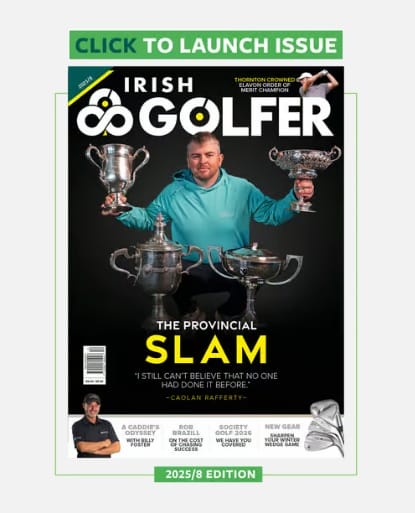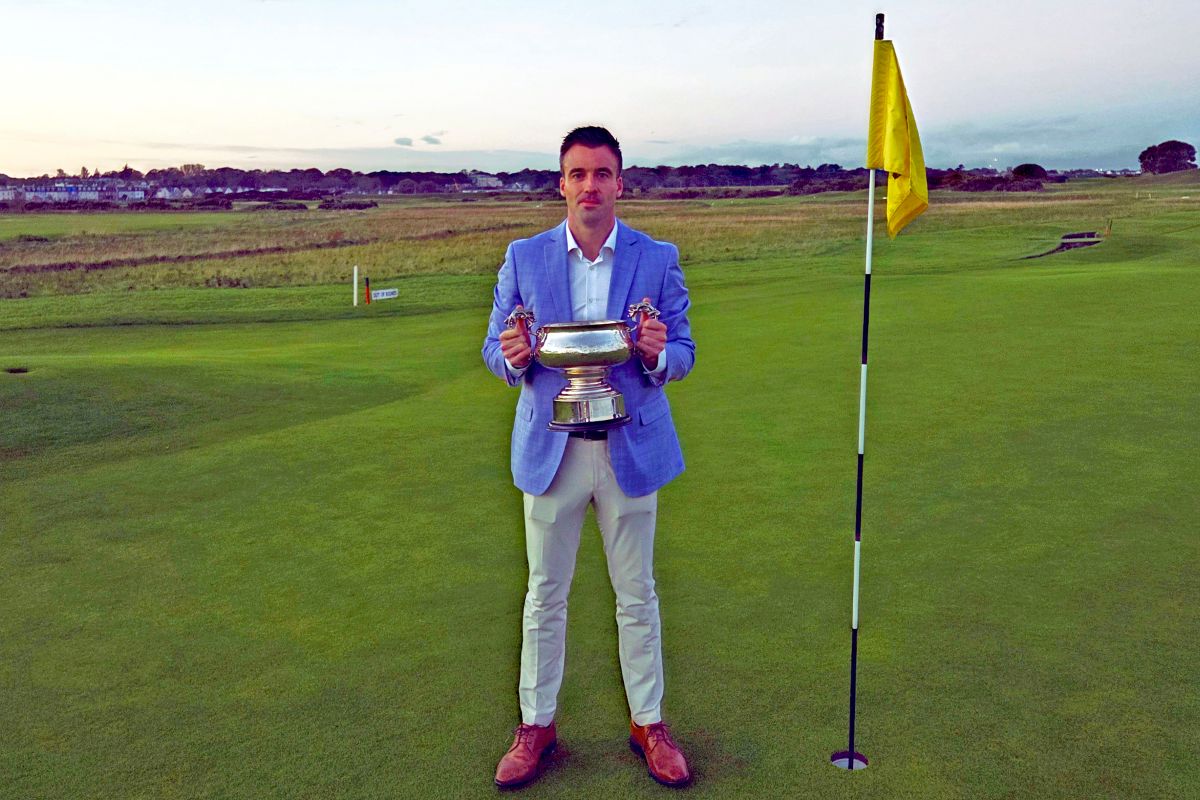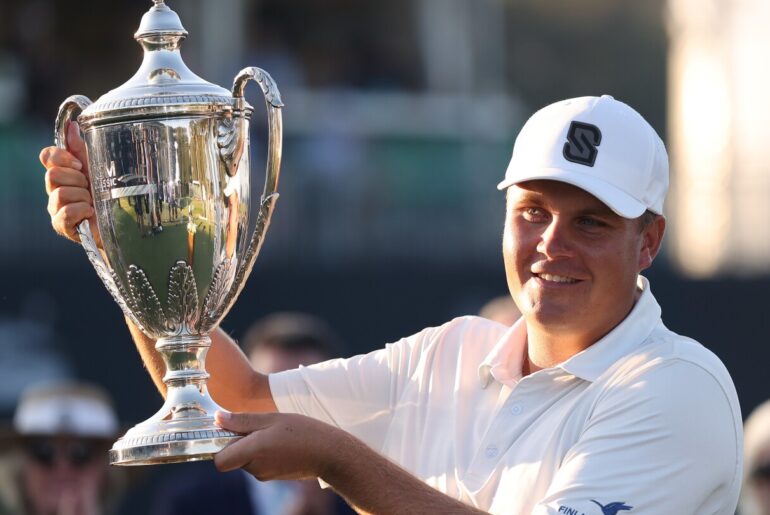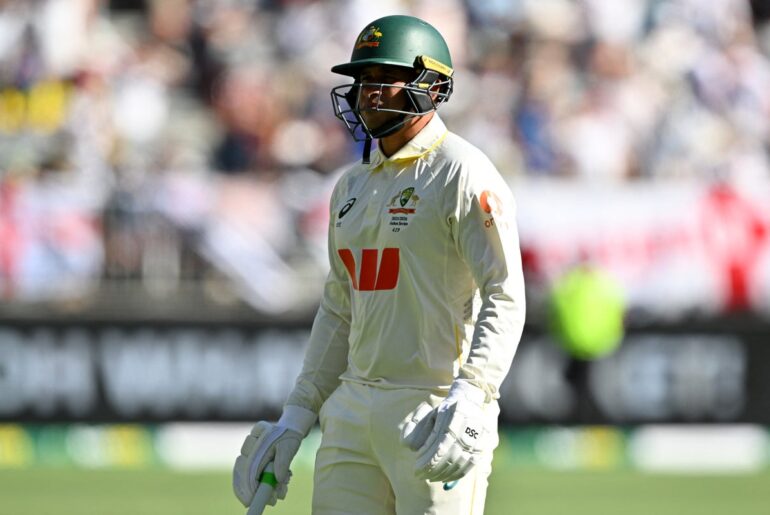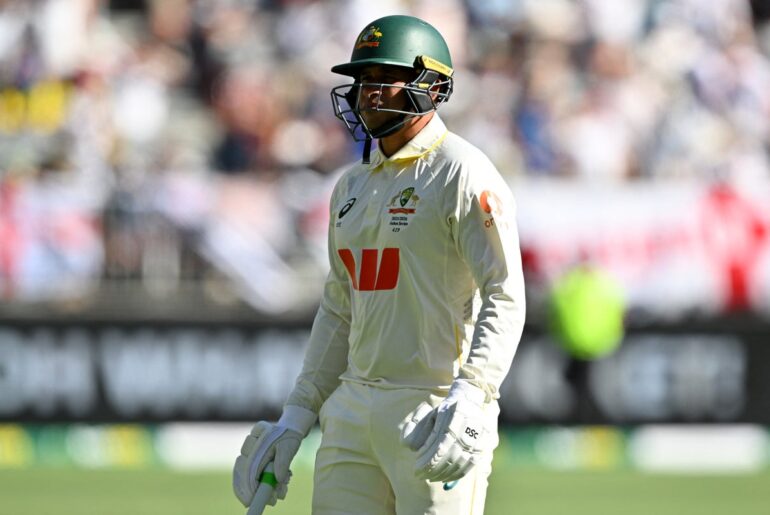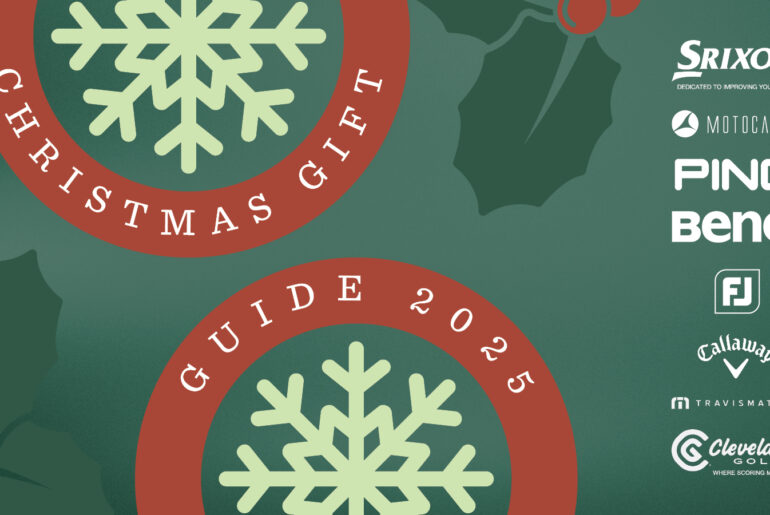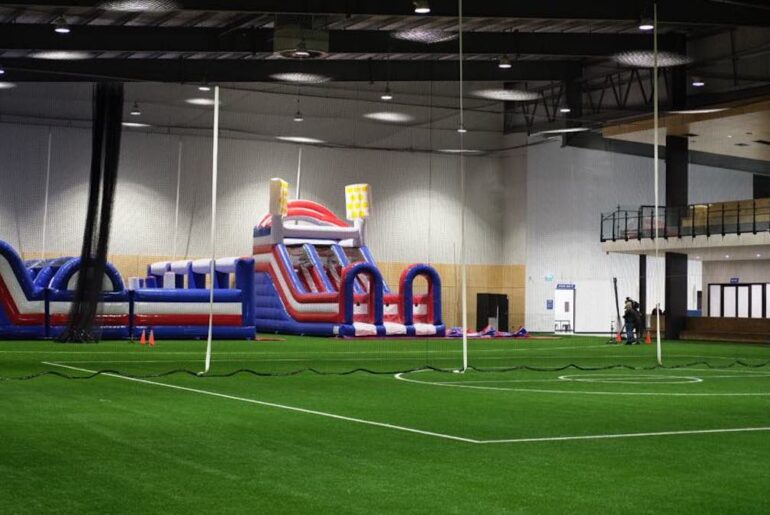Gary McGrane’s triumph at the Moran Cup marks not just a professional victory at his boyhood club, Royal Dublin, but a powerful testament to his journey through addiction, recovery, and rebuilding – one day at a time.
In October, Gary McGrane lifted the Moran Cup at his boyhood club, Royal Dublin, with his mother and father standing beside him. As one of the founding members and the first chairman of the Irish PGA, Michael Moran’s name is etched into the lore of Royal Dublin, not just because he was the head professional there from 1909 to 1914 – he was literally born on the golf course in a small cottage between the third and 13th holes.
He won five consecutive Irish PGA Championships, the last in 1913, and finished third in the Open Championship that same year. Moran died on the battlefields of France in 1918, aged 31, and the Moran Cup, inaugurated in 1920, is one of the longest running events on the PGA Southern Branch’s calendar.
On the surface, it was a maiden professional victory and fitting that it occurred at the club where he’d grown up playing, as Moran himself had. But for McGrane himself, it represented something much deeper — recovery, rebuilding, a huge step on the journey.
A prodigious golfing talent, McGrane came through the same amateur ranks as Rory McIlroy, Shane Lowry, Séamus Power, and Niall Kearney. A former Irish Boys Champion and Irish International, he achieved a huge amount in his teenage years and early 20s and seemed destined to progress seamlessly into the professional game.
But behind the golf, there was a struggle few could see. The pressure, expectation and internal battles led him down a path that began to take him away from who he was. At his lowest, alcohol had replaced the joy of the game.
“Looking back, the drink had become the thing I chased,” McGrane says. “It was giving me the buzz that golf had always given me — only it was stronger. I was still entering championships and playing at Royal Dublin on Saturdays just to keep my Mam and Dad off my back, but I wasn’t present. I wasn’t myself. I was just getting by.
“The drink started to become more enjoyable than the golf.
“As I went on, I kind of lost the bug. The drink was giving me that dopamine, giving me that buzz that golf had given me. But the drink was just giving me much more.
“Looking back, it was crazy to think that I was going to play golf while drinking the way I was.”
He had periods where he stopped drinking, and even a promising winter stint in America inspired him to pursue a professional career. He began his PGA journey at St Anne’s GC, supported and guided by Cormac Hennessy, before moving to Sutton GC, where Paddy Devine played a huge role in trying to keep him on track as things worsened.
“When COVID hit, everything spiralled,” McGrane recalls. “Paddy knew I was struggling. We had honest conversations. He supported me when he could have easily given up on me, and I’ll always be grateful for that.”
Eventually, McGrane checked into the Rutland Centre for a residential recovery programme.
“Thanks to Paddy, he was very good to me. He didn’t sack me. He could have sacked me on the spot. I think if I was working somewhere else, he probably would have. But I think he knew me, I wasn’t a bad fella. I had a problem with drink, and he stood by me, thank God, and got me in. I got into Rutland Centre a few weeks after that. That was the start of my journey.
“When I went in, I had no idea what was in store for me. There were 30 others with other addictions, mostly alcohol and cocaine. It was a really intense programme with your schedule mapped out for the five weeks. I learned a lot about myself. I had no phone, sitting in a dark room alone looking at my life. I’m in my 20s and just thinking, ‘how have I let this happen? How have I changed so much?’ The drink just got a hold of me.
“That was the start of facing myself properly. No distractions. No hiding. It was tough, but it opened the door to change.
“I gave the five weeks everything and I knew I had to take responsibility for myself. Mick Woods, the counsellor, warned me not to change anything in two years, no relationships and just stick to the plan of getting a sponsor and going to meetings.
Next came the hardest restart.
When he completed treatment and returned to golf, there was no triumphant comeback. There was no fairy-tale moment. His first competitive event was the Coca-Cola PGA Assistants Championship in April 2021, where he shot 92 (+19) and finished dead last. The only way was up.
“That round was the most important round of golf I’ve ever played,” he says. “I was raw, vulnerable and miles away from where I had been. But I showed up. I walked every hole. I shook hands. I didn’t quit. That was the start of rebuilding myself, both as a golfer and as a person.”
Recovery did not happen instantly. After leaving the Rutland Centre, there were dark periods and setbacks, including a significant relapse. But it was during that stage of rebuilding that the real work began.
He continued his PGA training at Clontarf GC, where Eamon Brady supported him as he rebuilt both his game and his confidence.
During the final phase of his PGA qualification, he was supported by Allan Martin, based in the UK and working within the PGA’s education support team.
“Allan wasn’t coaching me — he was part of the PGA education support structure — but he really went above and beyond,” McGrane explained. “He checked in, encouraged me, and helped me stay on track. I’m very grateful for that.”
McGrane has been sober since January 2022. His ongoing routine includes weekly counselling at DYP, regular support groups, and a daily structure built around training, coaching, reflection and self-discipline.
Last December, his mother suffered a stroke. The family’s journey through her recovery has been emotional, challenging, and grounding which is why his Moran Cup win was extra special.
“To win felt unbelievable, to be able to hold the trophy at Royal Dublin with her and my dad after everything she’s been through, everything we’ve been through as a family — that moment meant more than any score ever could.
“My mother was there for me all the time all through my life. She saw the good, the bad and the ugly, so to be able to hold the trophy with her and dad was something that, if you said to me in January that it would happen, I would have laughed at you.
“It’s given me the buzz to kick on. I’m definitely going to give it some go over the winter, have a few things to work on.”
Today, McGrane’s coaching business is thriving. He travels abroad with groups, his schedule is consistently full, he is competing again, and his passion for golf has returned with purpose.
“I’m very ambitious. But I’ve learned that progress isn’t about huge leaps. It’s about small steps, routine, and discipline. It’s turning up every day. It’s doing the simple things well. And it’s staying connected to the people who support you.
“It doesn’t happen overnight, just build it up overnight. I’ll get to where I want to go. There will be more special moments in my life. I know when I’ve worked hard and stuck to the process I’ve got the results. It might not happen today, tomorrow, six weeks, six months, six years, but it will.”
He is open about his recovery because he knows silence isolates people — especially young men.
“If someone is struggling, I want them to know they’re not alone. There is help. I got through it because of support, not strength. And I’ll never forget that.”
McGrane is deeply grateful to those who backed him throughout his journey:
“The PGA in Ireland, the members of Royal Dublin, St Anne’s, Sutton, and Clontarf — the support I’ve had from all of them has meant the world. I wouldn’t be here without the people and communities that stood by me.”
His message now is simple: “Small steps, routine and discipline changed my life. If you’re struggling — reach out. You are not alone.”
You can follow Gary’s journey or message him privately on Instagram
The above feature appeared in the 2025-8 edition or Irish Golfer. To view the full edition click below
